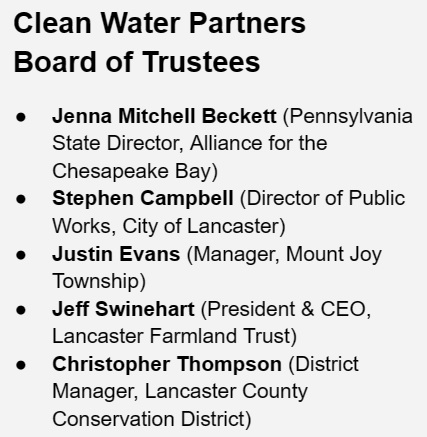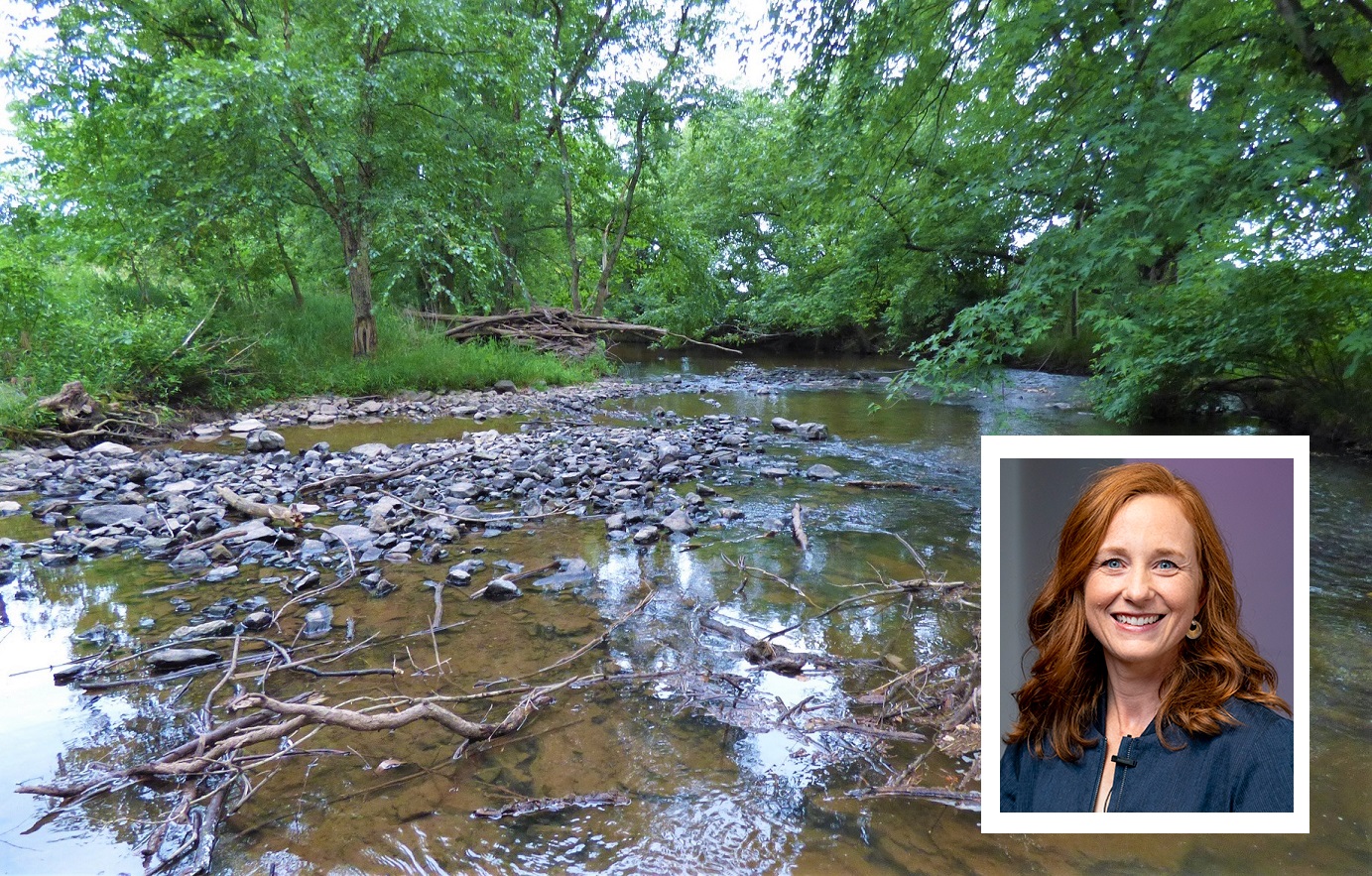Five years after its creation as a program within the Conservation Foundation of Lancaster County, Lancaster Clean Water Partners has become a nonprofit.
Last month, it officially registered as a limited liability company with the Pennsylvania Department of State. Allyson Gibson, up to now its director of strategic programs and partnerships, has been named executive director.

The change means that Clean Water Partners now has its own governing board, executive committee and operating agreement.
Nonprofits can be LLCs if they are subsidiaries of 501c3 organizations — as is the case with Clean Water Partners, which remains under the umbrella of the Conservation Foundation. It is considered part of the foundation for federal tax purposes and its operations and financials will be part of the foundation’s Form 990 tax reporting.
Becoming an LLC allows Clean Water Partners to act independently of the foundation. In particular, it can apply for grants and enter into grant agreements on its own, spokeswoman Elvira Felix said in an email.
About the Conservation Foundation
The Conservation Foundation was created in 2007 as a nonprofit affiliate of the Lancaster County Conservation District. The district is a state agency and, as such, cannot apply for grants from foundations or other private entities; the foundation, as a 501c3, can.
Every county except Philadelphia has a conservation district. They are tasked with supporting environmental work including erosion control, stormwater management and agricultural land preservation. Those in the Chesapeake Bay Watershed are the frontline entities for implementing Pennsylvania’s share of the pollution reduction strategy formalized in the multi-state Chesapeake Bay Watershed Agreement.
Watershed pollution reduction

It was the push to restore the bay that led to creation of Clean Water Partners.
Runoff of fertilizer from farms is a major source of water pollution. Lancaster County accounts for more such pollution than any other county in the state and is tasked with making more than 20% of the pollution reductions required of Pennsylvania in the watershed agreement.
Local officials were worried that state and federal officials would impose onerous environmental mandates on the county’s farmers and other landowners. They formed Clean Water Partners in 2018 to coordinate clean water efforts locally, with the goal of implementing practices that yielded the largest pollution reduction with the least adverse economic impact.
Gibson was hired then as Clean Water Partners’ coordinator. She led “the creation and implementation of the vision,” making Clean Water Partners a “backbone organization” for work to improve water quality, the organization said in statement.
The foundation is managed by Conservation District employees and has no staff of its own. The same is true of Clean Water Partners, Felix said.
Besides Gibson and Felix, Megan Blackmon serves Clean Water Partners as project and grants coordinator. The organization is recruiting for a funding director and a coordinator of municipal partnerships and projects, Felix said.






